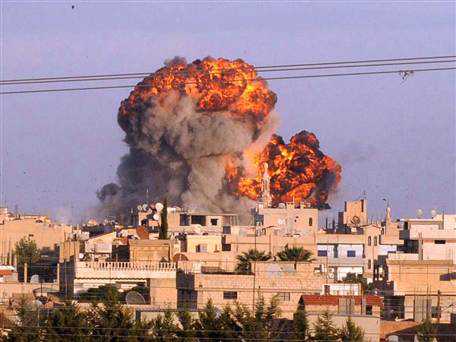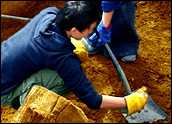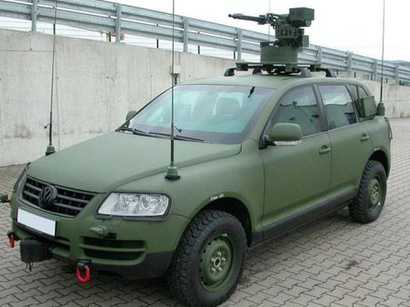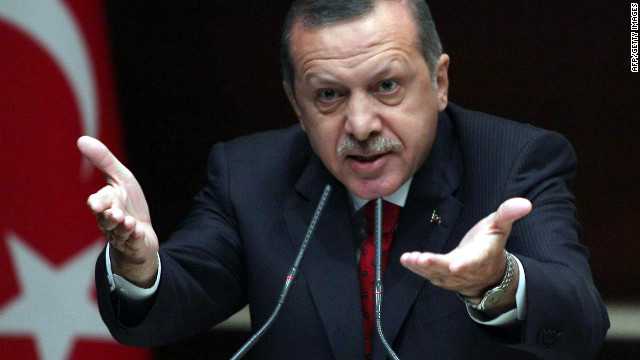
Syrian Air Force bombers leave behind billowlng smoke in the Syrian town of Ras al-Ayn, as seen from the Turkish town of Ceylanpinar, Tuesday
THE NEW YORK TIMES
PARIS — Syrian authorities ordered airstrikes for a third consecutive day close to the tense Turkish border today, and said a French decision to recognize and consider arming a newly formed Syrian rebel coalition was an “immoral” act “encouraging the destruction of Syria.”
The French move was depicted by analysts as an attempt to inject momentum into a broad Western and Arab effort to build a viable and effective opposition to hasten the end of a stalemated civil war which has further destabilized the Middle East.
For its part, the United States today signaled a reluctance to go beyond its characterization of the rebel alliance as a legitimate representative of the Syrian people, rather than as their sole representative.
Speaking in Perth, Australia, Secretary of State Hillary Rodham Clinton said Washington first wanted to see the coalition influencing events on the ground.
“As the Syrian opposition takes these steps and demonstrates its effectiveness in advancing the cause of a unified, democratic, pluralistic Syria, we will be prepared to work with them to deliver assistance to the Syrian people,” news reports quoted her saying.
At the same time, she announced $30 million in American humanitarian aid to feed people affected by the civil war, bringing the total American assistance to almost $200 million.
The airstrikes today underscored the urgency of the diplomatic maneuvers. Journalists along the 550-mile border between Turkey and Syria near the Turkish border town of Ceylanpinar said they witnessed a Syrian airstrike in the adjacent Syrian town of Ras al-Ain, where rebels say they have ousted troops loyal to Mr. Assad. It was the third such strike there in as many days.
In response, Reuters reported, Turkey scrambled fighter jets to its southeastern border with Syria, recalling Turkey’s insistence that it will not refrain from a tougher reaction against Syria.
The official SANA news agency in Syria made no direct reference to the Western moves. But the deputy foreign minister, Faisal Muqdad, told the Agence France-Presse news agency that the establishment of the opposition coalition in Doha, Qatar, was a “ declaration of war.” “We read the Doha document and they reject any dialogue with the government.”
Referring to the French recognition of the alliance, he said: “Allow me to use the word, this is an immoral position. They are supporting killers, terrorists and they are encouraging the destruction of Syria.”The announcement by President François Hollande on Tuesday made France the first Western country to fully embrace the new coalition, which came together this past weekend under Western pressure after days of difficult negotiations in Doha, Qatar.
The six Arab countries of the Gulf Cooperation Council, including key opposition supporters Qatar and Saudi Arabia, recognized the rebel coalition on Monday as the legitimate Syrian government. Political analysts called Mr. Hollande’s announcement an important moment in the Syrian conflict, which began as a peaceful Arab Spring uprising in March 2011. It was harshly suppressed by Mr. Assad, turned into a civil war and has left nearly 40,000 Syrians dead, displaced about 2.5 million and forced more than 400,000 to flee to neighboring countries, according to international relief agencies.
“It’s certainly another page of the story,” Augustus Richard Norton, a professor of international relations at Boston University and an expert on Middle East political history, said of the French announcement. “I think it’s important. But it will be much more important if other countries follow suit. I don’t think we’re quite there yet.”
Andrew J. Tabler, a Syria expert at the Washington Institute for Near East Policy, said that the new coalition would have to create a secure zone in Syria to be successful, and that such a step would require support from the United States, which was instrumental in the negotiations that led to the group’s creation but has not yet committed to giving it full recognition.
What the French have done, Mr. Tabler said, is significant because they have started the process of broader recognition, putting pressure on the group to succeed. “They’ve decided to back this umbrella organization and hope that it has some kind of political legitimacy and keep it from going to extremists,” he said. “It’s a gamble. The gamble is that it will stiffen the backs of the opposition.”
France’s statement also was a clear reflection of frustration with the growing death toll and military stalemate in Syria. It came a week after the re-election of President Obama, who had clearly been unwilling to consider any military policy that could hurt his prospects.
Mr. Hollande’s announcement came as the rebel coalition’s newly chosen leader, Sheik Ahmed Moaz al-Khatib, a former imam of the historic Umayyad Mosque in Damascus and a respected figure in Syria, made a broad appeal to Western and Arab countries for recognition and military aid. Foreign ministers of the Arab League, while approving the new group as the “legitimate representative of the Syrian opposition,” have not agreed on recognizing it as a provisional government to replace Mr. Assad.
France, the former colonial power in Syria, has been pressing for a more committed international effort to help the anti-Assad movement.
via For third day in row, Syrian jets bomb near Turkey – Worcester Telegram & Gazette – telegram.com.





